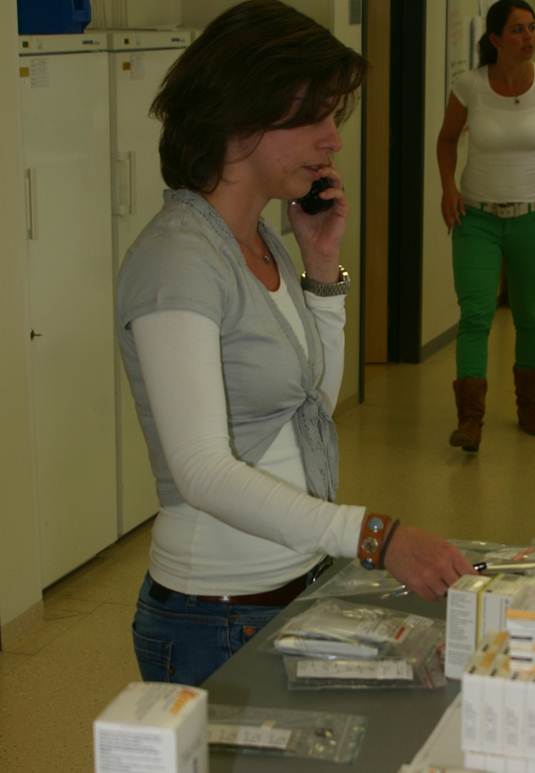European Hospital Pharmacists call for action on medicines shortages
 13th July 2012
13th July 2012
Problems caused by medicines shortages are serious, threaten patient care in hospitals and require urgent action. So said a statement issued today by the European Association of Hospital Pharmacists (EAHP).
EAHP’s recent General Assembly of 31 member countries prioritised the issue for discussion and resolved that the solutions to the shortage problem include:
- greater prescriber awareness of shortage difficulties and willingness to discuss the matter with hospital pharmacist colleagues;
- vigilance by hospital pharmacists and pro-active information-sharing with health professional colleagues about the problem;
- use of quotas by wholesalers to ensure fair distribution when demand exceeds supply;
-adequate notice and alerts by manufacturers, and the maintenance of buffer stocks; and,
- rigorous action by regulatory agencies including monitoring of shortages and best practice sharing.
EAHP’s statement also called for the European Commission to commence an investigation of the medicines shortage problem looking at:
- the issue of free movement of goods, and whether or not this is a factor in undermining national medicines supply chains, and if so, how can the conflict best be resolved at a European level;
- the extent to which European Guidelines on Good Distribution Practice of Medicinal Products for Human Use (94/C 63/03) are being adhered to; and,
- the extent to which this Guideline may need to be updated in view of the shortage problem.
Commenting on the statement, Dr. Roberto Frontini, President of the EAHP, said:
“I have great fears for patient safety if the medicines shortage problem in Europe continues or worsens. Medicines are not simple items of commerce, they are an essential component of patient care and in the hospital sector they must be administered to the patient in a timely manner. Furthermore managing medicines shortages and ensuring continuity of supply can also divert significant amounts of a hospital pharmacist’s time and attention from other tasks important in the provision of high quality, safe and efficacious care.”
“I hope EAHP’s statement can be a helpful step in gaining a consensus amongst stakeholders about the solutions that are required, and in bringing an early end to this concerning problem.”
ENDS
For further information please contact info[at]eahp[dot]eu
* EAHP President Dr. Roberto Frontini is available for interview on request
NOTES TO EDITORS:
1. The European Association of Hospital Pharmacists is an association of national organisations representing hospital pharmacists at European and international levels. More information about the EAHP and its history here.
2. The new Statement from EAHP was approved by delegates at its recent General Assembly in Budapest (14-17 June). It is available on the EAHP website here.
3. Medicines which have a significant clinical consequence when doses are missed include anti-psychotics, anti-epileptics, immunosuppressives and ati-cancer drugs. Shortages of such medicine place the ability to provide timely administration of a particular medicine under threat.
4. Medicines shortage problems can also undermine efforts to reduce costs in health systems as often, in the case of shortage, a more costly alternative must be used – or worse, a less effective alternative, a perverse scenario in relation to a hospital pharmacist’s instinctive drive to improve patient outcomes.
5. A potential risk to the safety of the supply chain is also posed by medicines shortages as unscrupulous individuals or organisations could take advantage of an increasingly difficult situation through the sale into the supply chain of counterfeit medicinal products.
6. Photographs from the General Assembly are available here




